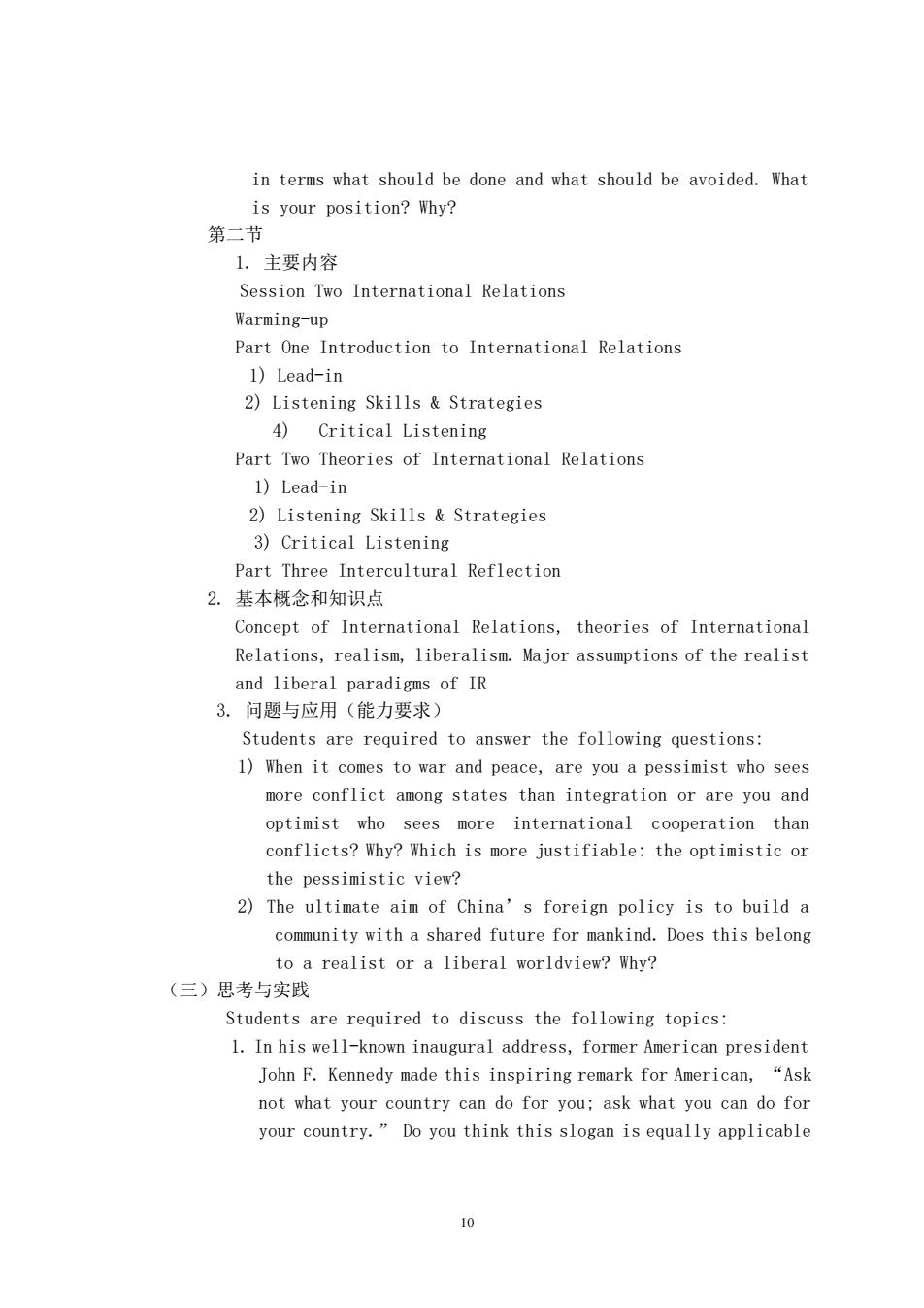正在加载图片...

in terms what should be done and what should be avoided.What is your position?Why? 第二节 1.主要内容 Session two international relations Warming-up Part One Introduction to International Relations 1)Lead-in 2)Listening Skills Strategies 4)Critical Listening Part Two Theories of International Relations 1 Lead-in 2)Listening Skills Strategies 3)Critical Listening Part Three Intercultural Reflection 2.基本概念和知识点 Concept of International Relations,theories of International Relations,realism,liberalism.Major assumptions of the realist and liberal paradigms of IR 3.问题与应用(能力要求) Students are required to answer the following questions: 1)When it comes to war and peace,are you a pessimist who sees more conflict among states than integration or are you and optimist who sees more international cooperation than conflicts?Why?Which is more justifiable:the optimistic or the pessimistic view? 2)The ultimate aim of China's foreign policy is to build a community with a shared future for mankind.Does this belong to a realist or a liberal worldview?Why? (三)思考与实践 Students are required to discuss the following topics: 1.In his well-known inaugural address,former American president John F.Kennedy made this inspiring remark for American,"Ask not what your country can do for you:ask what you can do for your country.Do you think this slogan is equally applicable 1010 in terms what should be done and what should be avoided. What is your position? Why? 第二节 1. 主要内容 Session Two International Relations Warming-up Part One Introduction to International Relations 1) Lead-in 2) Listening Skills & Strategies 4) Critical Listening Part Two Theories of International Relations 1) Lead-in 2) Listening Skills & Strategies 3) Critical Listening Part Three Intercultural Reflection 2. 基本概念和知识点 Concept of International Relations, theories of International Relations, realism, liberalism. Major assumptions of the realist and liberal paradigms of IR 3. 问题与应用(能力要求) Students are required to answer the following questions: 1) When it comes to war and peace, are you a pessimist who sees more conflict among states than integration or are you and optimist who sees more international cooperation than conflicts? Why? Which is more justifiable: the optimistic or the pessimistic view? 2) The ultimate aim of China’s foreign policy is to build a community with a shared future for mankind. Does this belong to a realist or a liberal worldview? Why? (三)思考与实践 Students are required to discuss the following topics: 1. In his well-known inaugural address, former American president John F. Kennedy made this inspiring remark for American, “Ask not what your country can do for you; ask what you can do for your country.” Do you think this slogan is equally applicable